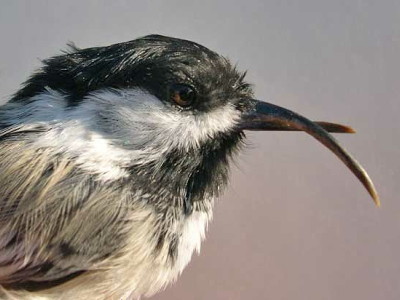The possibility that the herbicide 'Roundup' is involved in the mysterious kidney disease that occurs frequently has emerged

by
An investigation into a rural village in Sri Lanka, where mysterious kidney diseases have been occurring frequently over the past few decades, revealed that the cause may be an ingredient in the herbicide Roundup , which is used around the world.
Glyphosate and Fluoride in High-Hardness Drinking Water Are Positively Associated with Chronic Kidney Disease of Unknown Etiology (CKDu) in Sri Lanka | Environmental Science & Technology Letters
https://pubs.acs.org/doi/10.1021/acs.estlett.3c00504
Roundup herbicide ingredient connected to epidemic levels of chronic kidney disease
https://phys.org/news/2023-10-roundup-herbicide-ingredient-epidemic-chronic.html
A disease called ` `Chronic Kidney Disease of Unknown etiology/Uncertain cause'' (CKDu) is occurring frequently in rural areas around the world. It has been reported that many people who develop CKDu experience a rapid decline in kidney function, and in some cases even death, and many cases have been confirmed, particularly in Sri Lanka and Central America.

Nishad Jayasundara of Duke University and his colleagues investigated well water in rural Sri Lanka and found that
Roundup is a glyphosate herbicide used to control weeds and pests. Roundup is not specifically regulated by most public health agencies, including Japan, because it breaks down in the environment within days to weeks. However, when glyphosate encounters certain trace metal ions, such as magnesium and calcium, which are abundant in hard water, metal ion complexes can be formed, and these complexes can last up to 7 years in water and up to 22 years in soil. Apparently it can last for years.
In certain agricultural regions of Sri Lanka, the combination of high altitude, dry climate and geological formations creates ideal conditions for hard water. It is in these areas that CKDu is prevalent, and even in children between the ages of 5 and 11, 10% of children show signs of kidney damage.

Jayasundara from Sri Lanka said, ``It was thought that this chemical would break down quickly in the environment, but when it composes in hard water, it seems to persist longer than expected.'' He points out that we need to consider how glyphosate interacts with other elements, and what happens to glyphosate when it is taken into the body as a complex.
Although the use of herbicides was prohibited in Sri Lanka, Jayasunthara still believed that herbicides were involved in the development of CKDu, so he decided to investigate more than 200 wells in four regions of Sri Lanka. .

When Jayasunthara and his colleagues analyzed well water using methods that can identify contaminants, they found that herbicide concentrations were significantly higher in 44% of CKDu-affected areas.
Additionally, researchers found that almost all drinking water in areas with high rates of CKDu had high concentrations of fluoride and vanadium, which are linked to kidney damage. 'More attention needs to be paid to whether each of these pollutants has an effect on its own or together with other pollutants.'

Lee Ferguson, who worked on the study, said: ``Although we focused on drinking water, there may be other important routes of exposure, such as direct contact from workers spraying pesticides; 'Maybe it's through food. I would like to see more research focus on examining the connections between these exposure routes. There may still be something we're missing.'
Related Posts:
in Science, Posted by log1p_kr







